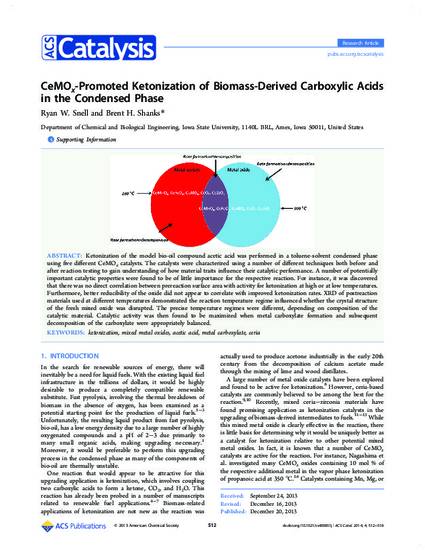
Ketonization of the model bio-oil compound acetic acid was performed in a toluene-solvent condensed phase using five different CeMOx catalysts. The catalysts were characterized using a number of different techniques both before and after reaction testing to gain understanding of how material traits influence their catalytic performance. A number of potentially important catalytic properties were found to be of little importance for the respective reaction. For instance, it was discovered that there was no direct correlation between prereaction surface area with activity for ketonization at high or at low temperatures. Furthermore, better reducibility of the oxide did not appear to correlate with improved ketonization rates. XRD of postreaction materials used at different temperatures demonstrated the reaction temperature regime influenced whether the crystal structure of the fresh mixed oxide was disrupted. The precise temperature regimes were different, depending on composition of the catalytic material. Catalytic activity was then found to be maximized when metal carboxylate formation and subsequent decomposition of the carboxylate were appropriately balanced.
Available at: http://works.bepress.com/brent_shanks/31/

Reprinted (adapted) with permission from ACS Catalysis 4 (2014): 512, doi: 10.1021/cs400851j. Copyright 2014 American Chemical Society.